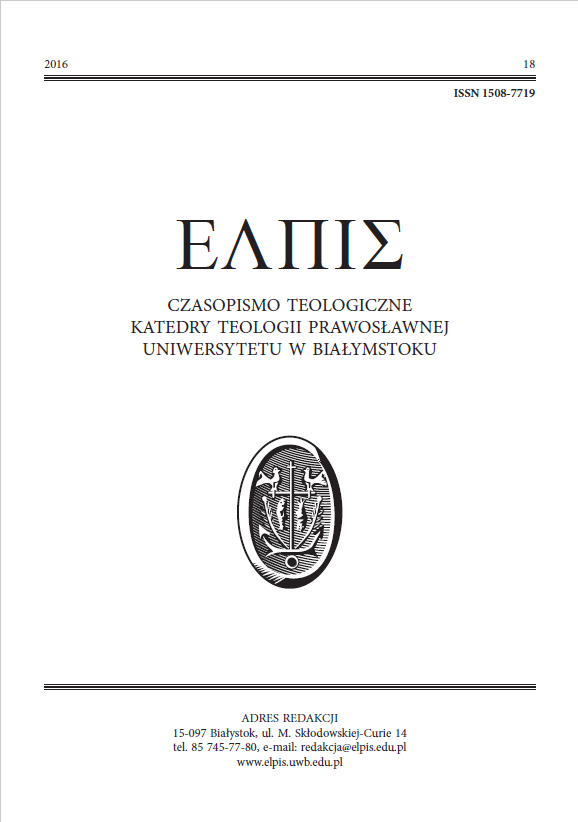Instytucja rodziny w teologii Pawłowej i Bizancjum w opiniach sądów cerkiewnych Despotatu Epiru
The Institution of the Family in Pauline theology and Byzantium in Despotat Epirus’s Church Court Opinions
Author(s): Andrzej BorkowskiSubject(s): Christian Theology and Religion, Theology and Religion, Eastern Orthodoxy
Published by: Wydawnictwo Uniwersytetu w Białymstoku
Keywords: family; marriage; the Byzantine; Orthodox judiciary
Summary/Abstract: St Paul teaches that family life is founded on the union of a man and woman, which symbolises the relation between Christ and His Church. A second guideline to family life is the education and upbringing of children “in Christ.” The Apostle Paul, in his letters provides parents with advice on how they should raise their children, and children on how they should behave in relation to their parents. In this advice, although limited in number and extend, one can distinguish the basic elements of Christian education for children. For the Apostle Paul, the cultivation of healthy relations is indispensable, not only in the relations between husbands and wives, but also in the relationship between parents and children. Parents have the main responsibility for the creation of pedagogic relation with their children and they can contribute to their education, by providing them social stimuli. The institution of the family has long attracted the interest of Byzantine scholars. Influenced by, among other things, the social sciences, the focus has expanded in recent years to include the function of the family as a social and economic unit in Byzantine society. Since marriage is the basis for the formation of a family, the field of study embraces the rules governing the contracting of a marriage (age, criteria for the selection of a spouse), betrothal, impediments to marriage, the institution of marriage portions and bridal gifts, the status of the wife and children, divorce and so on. Under the Romans, marriage was a civil act. As Christianity spread, the Church gradually came to intervene and acquire a role in the institution. The purpose of marriage is procreation and the perpetuation of the human race, and in this sense, it is of interest to both church and state. A turning-point was reached with the promulgation by Leo VI the Wise (886-912) of Novella 89, which laid down that only marriages blessed by the Church were legal. Later statues, beginning with the Tome (997) of Patriarch Sisinnius, codified the impediments to marriage by reason of kinship or affinity. Among the most illuminating sources for the study of the family and the legal relations deriving from marriage are the decisions and opinions of the ecclesiastical courts of the principality of Epirus and specifically those of the Metropolitan, John Apokaukos, and the Archdiocese of Ochrid, under Demetrios Chomatenos. It is interesting to note that these two prelates considered the cases brought before them not only in the light of the secular law and Church rules, but also with a certain broadness of mind and social sensitivity.
Journal: Elpis
- Issue Year: 2016
- Issue No: 18
- Page Range: 37-44
- Page Count: 8
- Language: Polish

